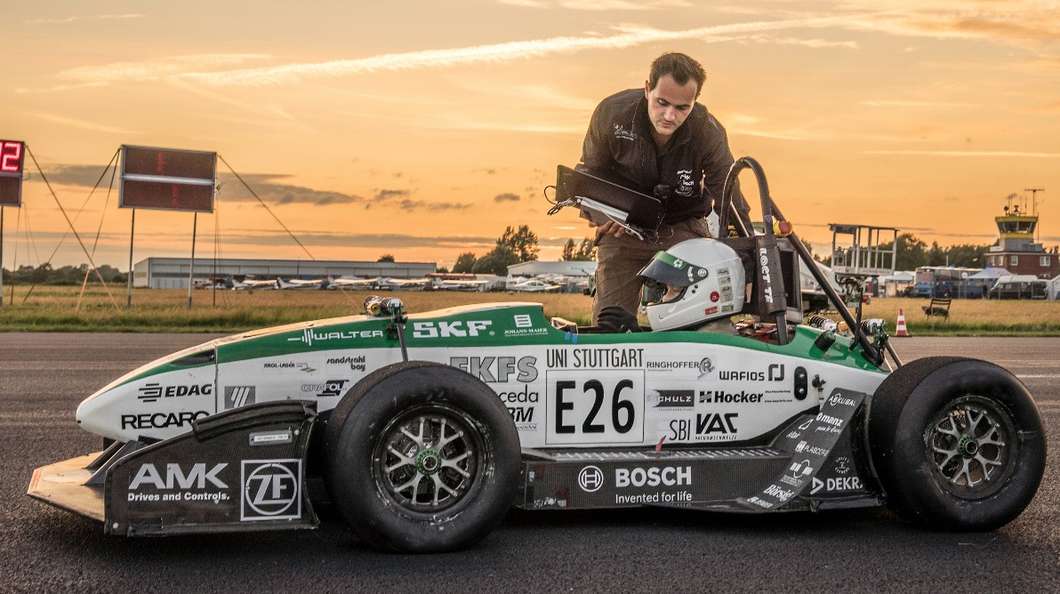A team of students from the University of Stuttgart just designed, built and raced what could be the fastest accelerating electric vehicle in the world.
During carefully monitored tests, the student-designed E0711-6 electric car successfully managed to accelerate from 0-100km/h in a mind-blowing 1.779 seconds. The team is anxiously awaiting confirmation of a new record from the Guinness Book of World Records.

Image via gizmag
The E0711-6 was designed and manufactured by a team of students calling themselves the Green Team who participate in an annual project to create an open, single-seater formula electric race car. This year’s vehicle —the sixth incarnation since the project started— weighs in at just 165 kg (363 lb) and is built entirely from parts either constructed from scratch, or modified by, the student team.
The chassis of the vehicle is composed of aluminum and titanium, with a lightweight carbon fiber body. Inside, the car is powered four servomotors from AMK that produce a combined output of 100kW, and a battery with a capacity of 6.62kWh. The battery is controlled through an in-house designed battery management system and a custom-built electrical control unit.
All of which enables the car to put down an insane 1200 Nm of torque, and reach a top speed of 130km(81miles)/h. The University of Stuttgart Green Team took their E0711-6 to an annual quarter-mile drag race—The Jade Race—which takes place at Mariensiel, Ostfriesland.
Once the official races were over, The Green Team took to the track, and after several dry runs—and removing the massive rear wing from the vehicle—they achieved what they came for, and beat the existing world record for the fastest accelerating electric vehicle ever, reaching 100km(62miles)/h in just 1.779 seconds.






